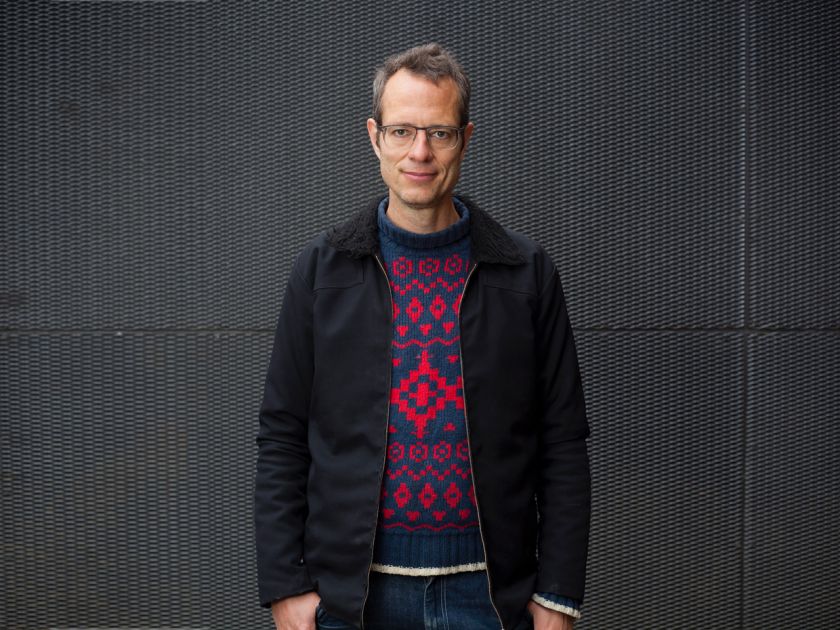How does our Brain Make us Dance?

The role the audience can play for a dance piece, and how the titular Spiegelneuronen (mirror Neurons) affect our brain – these are questions Stefan Kaegi of Rimini Protokoll explores with dancers of the company Sasha Waltz & Guests.
An experiment is what he has set up: Stefan Kaegi, stage director and part of the documentary-theatre collective Rimini Protokoll, makes not only members of Sasha Waltz & Guests dance in Spiegelneuronen. Rather, he and the artists would like to seduce each and every person in the audience into becoming an active part of the performance, from their seats. The main place of action is to be the auditorium. What happens there is reflected in a mirror taking up the entire stage.
The director, whose label Rimini Protokoll also includes Helgard Haug and Daniel Wetzel and is known for genre-bending stage works, interventions, staged installations and other formats and won the Silver Lion for Theatre at the Venice Biennial in 2011, uses this world premiere in Salzburg to carry out a form of research. The question he is pursuing is whether a group of viewers can be transformed by movement impulses into a network resembling our brain. This in turn explains the title of the world premiere production.
Kaegi, he says, has been studying neurosciences for a long time, including “the reactions impulses received from others spark in people, and which factors work together in the brain so that our body does something – whether small moves or large movements. Movement becomes a direct indicator of what is happening in our brain.” Thus, for Spiegelneuronen, he has insights of brain researchers incorporated into a soundtrack which will be heard during the performance. It will not contain any spoken orders or appeals to the audience, but will inform about neurosciences. For example about the theory that mirror neurons stimulate our brain in similar ways, no matter whether we are doing something ourselves or observing the action in other. “These recordings, for example, are about questions of perception and free will, but also about computer technology, artificial intelligence and robotics,” Kaegi explains. During his preparation, he found a project in which researchers tried to create a cartography of the brain, trying to find out which processes in the brain happen when, and how they are linked.
In Spiegelneuronen, Kaegi wants to try out when – as in a flock of birds – movements people see are taken over: “If someone starts running, do the others run as well, or not? How far are we able to react to others, but still question and doubt at the same time?”, the director asks. “During rehearsals so far, we quickly had the feeling of seeing something in the mirror that resembles the movements of water plants on coral reefs. That was a very beautiful sight.”
Becoming a Community. For his world premiere production, Kaegi is working for the first time with professional dancers of the company Sasha Waltz & Guests, which has been revolutionizing dance in Germany – and beyond – for the past 30 years. Yet this time, the “main point is not admiring individuals for their abilities, but the question is how you can get a whole room full of people to move,” says Kaegi. Dance thus becomes a wide-open field: “Even small movements which people carry out because of impulses can be dance here.” Sasha Waltz & Guests and Rimini Protokoll have very different backgrounds. What unites them, however, is their interest in unusual uses of space and interdisciplinary work. On the whole, Kaegi is after “a large image created in the mirror, to which every audience member contributes.” If anyone is reminded of the selfie trend of our times, they would not be far off the mark. Yet first and foremost, to him the question is “why it is emotionally moving when one becomes part of a whole.”
Theresa Steininger
Translation: Alexa Nieschlag
First published on 11.05.2024 in Die Presse Kultur Spezial: Salzburg Festival
